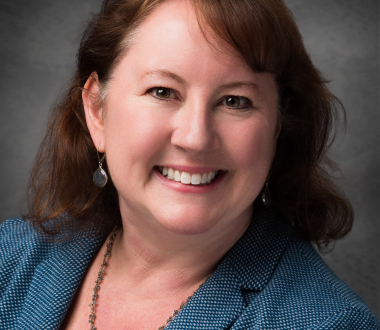
Wadsworth Center’s David Axelrod Institute, and all of Wadsworth Center for that matter, may be known to many as a place for research and education. But there’s a lot of clinical testing that goes on here too. You could even say the work performed here impacts every native New Yorker - from screening every baby born in the state, to testing for the measles, the flu, Legionella, Zika, C. auris, Ebola and much, much more. It all happens here.
Federal regulations require such testing be overseen by an individual with the appropriate education, training and experience. Dr. Jill Taylor had previously served as the Director of Clinical Testing, in addition to her ongoing role as Wadsworth Center Director. Now, Dr. Taylor has appointed Dr. Kimberlee Musser to assume oversight of clinical testing at David Axelrod Institute. Dr. Musser received her Ph.D. from Albany Medical College. Her post-doctoral training was as a CDC/APHL Emerging Infectious Diseases Research Fellow at the Wadsworth Center.
Developing Better Tests
Under her leadership, New York became the first state public health laboratory in the nation to utilize whole-genome sequencing (WGS) of TB isolates in a clinical testing algorithm. The lab had been designated a pilot site for WGS of Mycobacterium tuberculosis complex, one of only five such CDC-designated sites in the country. Dr. Musser is also an NIAID-funded principal investigator working with a team to develop methods to perform TB WGS directly from sputum samples, which may drastically reduce turn-around times. Her labs continue to expand WGS to different organisms including foodborne bacteria, Legionella, including as part of a large Legionella outbreak, as well as antibiotic resistance bacteria detected in healthcare facilities.
The Bacteriology Laboratory has developed dozens of molecular-based assays to rapidly detect, identify, or characterize established and emerging pathogens, including rapid sequenced-based and novel diagnostic real-time PCR-based assays, and symptom-based molecular testing panels. Her team validated and implemented MALDI-TOF mass spectrometry for bacterial species identification in 2012, before this testing was FDA cleared. They also characterize and maintain a historic bacterial culture collection and evaluate commercially available tests.
Fostering Partnerships
Dr. Musser is a principal investigator or project leader for a number of CDC, FDA and APHL funded programs including the NARMS, National Antimicrobial Resistance Monitoring System’s Retail Food Study, the Epidemiology and Laboratory Capacity for Infectious Disease’s PulseNet Area Lab and the Antimicrobial Resistance (AR) Lab Network. Her labs have contracts to develop WGS-based diagnostic tests for Mycobacterium tuberculosis and Legionella. As part of the CDC’s AR Lab Network, Dr. Musser’s lab is performing testing for eight states and New York City. The Bacteriology Laboratory is also one of ten public health laboratories in the country participating in the Emerging Infections Program (EIP), contributing to FoodNet, and performing surveillance for the Active Bacterial Core and the Enhanced Pertussis Surveillance. In addition to these public partnerships, she has had collaborations with Albany Medical College, Cornell, Cepheid, Zeptometrix, Opgen, DNA Genotek, EcoHealth Alliance and Meridian Biosciences.
Educating and Mentoring
Dr. Musser is an Assistant Professor in the Department of Biomedical Sciences at the University at Albany, a host lab mentor and site coordinator in the APHL/CDC Emerging Infectious Diseases (EID) Fellowship Program, and a co-coordinator in the Wadsworth Center NYS EID Fellowship program. She has mentored more than 30 students and fellows during her career. Dr. Musser was a member of the APHL’s Emerging Leader Program (ELP) Cohort 7 and is a current coach.
Beyond Wadsworth Center
Kim frequently shares her experience shepherding new tests from research, development and validation through regulatory approval. She has given over 50 invited seminars at local, national and international meetings including the APHL Annual Meeting, ASM Microbe, and the National Conference on Laboratory Aspects of Tuberculosis. She is a peer reviewer for six journals and co-author of four book chapters and over seventy peer-reviewed articles. Previously, she served as Chair and member of the APHL Antimicrobial Resistance Laboratory Workgroup, member of the APHL Workforce Development Committee, and Co-chair of the Microbiology Domain Team PHL Competencies workgroup. Kim currently serves as the Chair of the APHL TB Subcommittee.